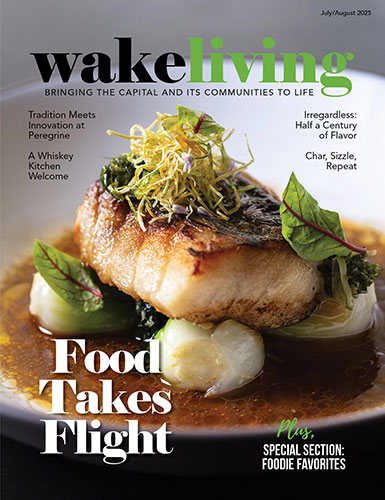The invisible breast cancer patient
Former Cary Magazine contributor Pam Schmid was the subject of her own story in the September/October 2004 issue, titled Cancer Will Never Happen to Me. Many readers have saved this piece for years, as a resource in the fight. (Read that story here.)
Diagnosed then with early stage breast cancer, Schmid has since authored the book, 101 Things You Should Know About Breast Cancer.

Schmid’s cancer returned in 2011 and here, with hope and a commitment to helping others, she shares this ongoing journey:
No, we don’t often look sick. In fact, we may be thriving because we know our time is shorter than longer.
We are the unseen faces of the breast cancer awareness campaigns, and the 40,000 who die each year. We have metastatic breast cancer, or MBC.
The return of my cancer in November 2011 is what all breast cancer patients fear. It came back, spreading to other parts of my body in what is termed “metastatic,” an incurable diagnosis, and terminal.
In 2004, I underwent aggressive treatment for my early Stage II-B breast cancer, in hopes it would never return.
There is no “five-year-we-are-in-the-clear statistic” for breast cancer. It becomes metastatic 20 to 30 percent of the time, depending on the original stage and type. Half of recurrences (of hormone-sensitive breast cancers) happen after five years. Mine occurred at seven.
The average prognosis for metastatic breast cancer is two to four years, though some live many more, but there is no cure.
If you were to see me out and about, you would never know that I have a terminal illness, let alone that I am on chemotherapy. I haven’t lost my hair and I don’t look “sick.”
In fact, when I was in the hospital this year and my lungs were filled with fluid and cancer was spreading rapidly again, the nurse doing the intake said, “You don’t look anything like you do on paper.”
I know. I’ve heard it a thousand times. I don’t look sick.

Living, Working & Savoring
Initial treatment regimens for MBC often do not involve chemotherapy, but are hormonal or targeted therapies (for the most common type of BC-estrogen positive).
And when those therapies stop working and cancer finds its way around the drugs, the chemotherapy may not be one that involves hair loss, like the one I am on now.
Eventually many patients will be on those types of drugs, but at first, they usually try drugs that allow more quality of life. Our treatment is considered palliative and about managing the cancer while preserving quality of life as long as possible, but it is not curative. I will be on some form of treatment for the rest of my life.
In spite of managing side effects that are too numerous to detail, we are a thriving group.
I am living, working and savoring all of the large and small things that make up a life. I even run 2 to 3 miles most days, when things are going well.
No, things are not always great, but there is this push-through factor that gets you up because time is ticking. Yes, pain, fatigue, depression, medical costs, side effects and uncertainty are a still a part of patients’ lives, and vary depending on their individual circumstances.
Life is uncertain for every human being, but having a target on one’s head changes the way life is lived. For me, the diagnosis is both a gift and a curse — the gift of a heightened awareness and urgency to seize the day and savor all of its blessings, the curse of a life cut short, knowing much of what I will miss.
I grieve when I think about leaving my family behind and not being there for them. But I focus on the present moment of today and the beauty around me with gratitude and hopeful anticipation of the future, nonetheless. Holding my first grandchild and experiencing the complete joy of his being is one of those gifts.
How to Help
What is helpful? Understanding our reality and just being with us on this journey.
Listening.
Offering platitudes or advice like, “Miracles happen” or “New treatments are coming up all the time,” or some version of “Eat this, drink this, think only positive thoughts and you will live forever,” may sound helpful but just leave us not heard, understood and alone.
These words perpetuate the myth that if we just fight hard enough, pray hard enough, eat or drink the right things, we will be favored and defy the science, laying blame if we don’t.
Yes, I believe in miracles, and have hope, yet I have also watched dear friends do of all the above, and pass away. I wish it weren’t so, but ignoring the truth doesn’t show understanding, or change anything. We need a cure!
Believe it or not, only a small percentage of research money is going into understanding metastatic disease, the actual killer from breast cancer. Mothers, sisters, wives, daughters, aunts and friends will die needlessly until we change that.
When I die, please do not say that I lost my battle. I lived and loved fully, and I did not lose.
FOLLOW UP: Pam Schmid has written a follow-up blog to this story. Read it at http://www.pamschmid.com/blog/blog.index.html.
For more information, visit the Metastatic Breast Cancer Network at mbcn.org.





